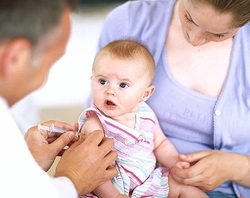Should You Vaccinate?

The best way to stay protected against pertussis is the obvious answer, receive the vaccination. Seeing as most doctors recommend that all babies should receive the vaccine it seems like the right answer. And it probably is, however there are still many families that do not take up the option to receive the vaccine for themselves or their babies. This could be from personal experience, doubt in the vaccine, or just may not want their child immunized. Their are both advantages and disadvantages to receiving the vaccination.
Advantages:
- The vaccine is free for both parents and Grandparents of newborn babies.
- Only need to receive the vaccine once every 10 years (from 11 years old on wards).
- Reduces the risk of catching and spreading the disease dramatically.
- Vaccinations start from around 2 months old to give them some protection when they are most at risk.
These are some of the advantages of receiving the vaccine. As shown above, it is free for parents and grandparents of babies which is a great adavantage seeing that that is the main age group who must be immunised. Also the vaccination lasts for 10 years before it starts wearing off, which is a very long period of time which is a real benefit so you don't need to be going back to your doctor to often to receive another vaccination. However, with babies vaccinations are required 3 times within 6 months of age. Although this may sound not the ideal idea, it provides your baby with the best possible protection against the disease when they are most vulnerable of catching it, and at that age, pertussis can be fatal. However, it is quite important to vaccinate to ensure another epidemic does not occur. Due to the fact that this is a highly contagious disease, if all babies and carers were vaccinated eliminating this disease from being around today would be far easier.
Disadvantages:
- Baby may experience side effects of vaccination
- Risk of having a allergic reaction
- Former cases of severe reactions to the vaccine
There have been reports of cases where vaccinated babies have had severe allergic reactions. This is very rare but still a risk in the process of vaccination. Also mild side effects may occur such as fever, redness and soreness or swelling where the injection was given, nausea and tiredness. Things such as nausea are hard to recognise in babies which makes parents more worried about receiving the vaccinations because of these risks. Another disadvantage to receiving the vaccine is that to receive the vaccine you must receive and injection. This thought and reality that you have to get a needle to receive this vaccine may put off many people from getting their babies and even themselves vaccinated. Although they are mild, and don't stay long, parents have to weigh up the risks with the benefits to decide whether or not to get their babies vaccinated.
Above are the reasons to and not to vaccinate, and it basically comes down to weighing up the advantages and disadvantages.
